Phytochemicals for Health’s Sake!
Originally published May 2016 as Phyto What?!
[su_expanding_quote_book alignment=”left” source_author=”David Heber MD,” source_title=” What Color is Your Diet?” full_quote=”When dietary intake of micronutrients (abundant in both diversity and amount) is optimized, a dramatic reduction in later life disease and enhancements in lifespan are possible. ” short_quote=”When we eat a significant and diverse amount of unprocessed vegetables, our chances of staying healthier and living longer increase.”]Phyto what?! Phytochemicals (also called phytonutrients) are natural chemical compounds in plants. Fruits, roots, leaves, vegetables, grains, beans, seeds, nuts are loaded with phytochemicals. These micronutrients are non-vitamin, non-mineral components that support the defensive and self-repairing abilities of the human body. It’s like creating an energy shield for our body. Eating a wide diversity of plant foods – including herbs and spices – significantly increases the phytochemicals we give our body.
Adding multiple plant foods into every meal is not only nutritious, but also delicious. Choosing healthy food does not mean sacrificing flavor or pleasure.
Benefits:
Increasing research prove phytonutrients perform multiple function such as:
- enhance our body’s anti-inflammatory abilities
- prevent mutations at the cellular level
- can prevent the proliferation of cancer cells
In other words, they boost our immune system and protect us from disease.
[su_expanding_quote_book alignment=”left” source_author=”Joel Fuhrman MD” source_title=”Eat to Live.” full_quote=”Substances newly discovered in broccoli and cabbage sprouts sweep toxins out of cells. Substances found in nuts and beans prevent damage to our cell’s DNA. Other compounds in beets, peppers and tomatoes, fight cancerous changes in cells. Oranges and apples protect our blood vessels from damage that could lead to heart disease. Nature’s chemoprotective army is alert and ready to remove our enemies and shield us form harm. Hardly a day goes by when a new study proclaims the health-giving properties of fruits, vegetables and beans.” short_quote=”Hardly a day goes by when a new study proclaims the health-giving properties of fruits, vegetables and beans.”]Phytonutrients are provided by real food. It is the synergy that matters – the interaction of phytochemicals with each other, and with other components (vitamins, minerals and fiber) that matters.
The most nutrient-dense, health-promoting foods are
- Green vegetables (kale, spinach, collard and mustard greens are highest in overall nutrient density (most micronutrients per calorie.)
- Cruciferous vegetables (broccoli, cauliflower, Brussels sprouts
- Beans (including lentil)
- Onions and garlic
- Mushrooms
- Berries and pomegranate
- Seeds (sunflower, pumpkin, sesame, flaxseed) and nuts
The more variety + the more quantity of plant foods we consume = the better we improve our immune system, which protects us from disease. So bring on the phytonutrients and boost your health.
What To Do
- Instead of processed breakfast cereals, make a habit of homemade granola or overnight oats like Crunchy Granola from Kath Eats Real Food, Cranberry Maple Granola from The Gracious Pantry. Layer it with season or dried fruits and whole-milk Greek yogurt or plant-milk and a drizzle of coconut milk. Sprinkle with an extra sprinkle of cinnamon, nutmeg, allspice or other spice
- Instead of white bread/bagel/mufin, enjoy whole-grain, plant-rich breakfast breads like Carrot Apple Muffins, Sweet Potato Pancakes or Pumpkin Waffles
- Sprinkle 1 – 3 tablespoons of sesame, sunflower seeds, pumpkins seeds, nuts or ground flaxseed to your smoothie, overnight oats, granola at breakfast. Add them to your breakfast breads, pancakes and waffles
- Add nuts and seeds to your salads and grains
- Try to incorporate onions and greens into at least one meal a day
For Further Health Empowerment:
Nutrition Facts: Phytochemicals, The Nutrition Facts Missing from the Label

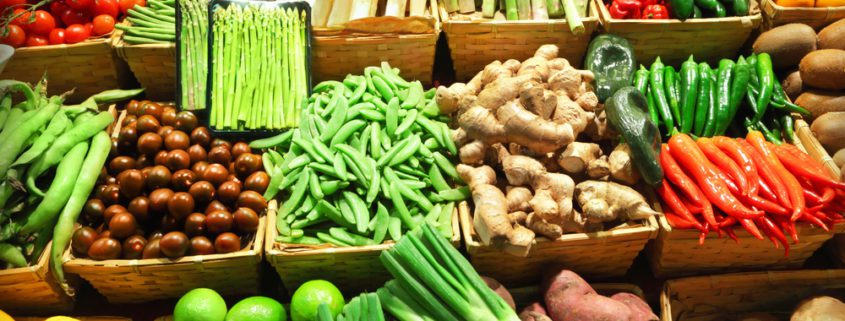
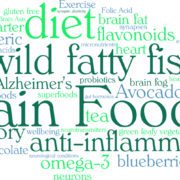
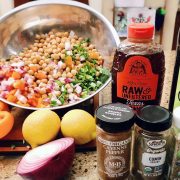
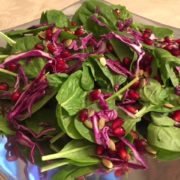
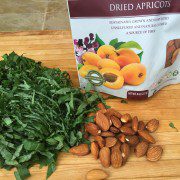
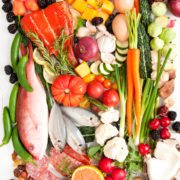
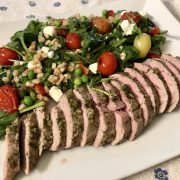

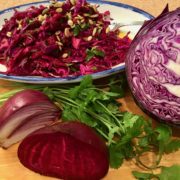


Leave a Reply
Want to join the discussion?Feel free to contribute!